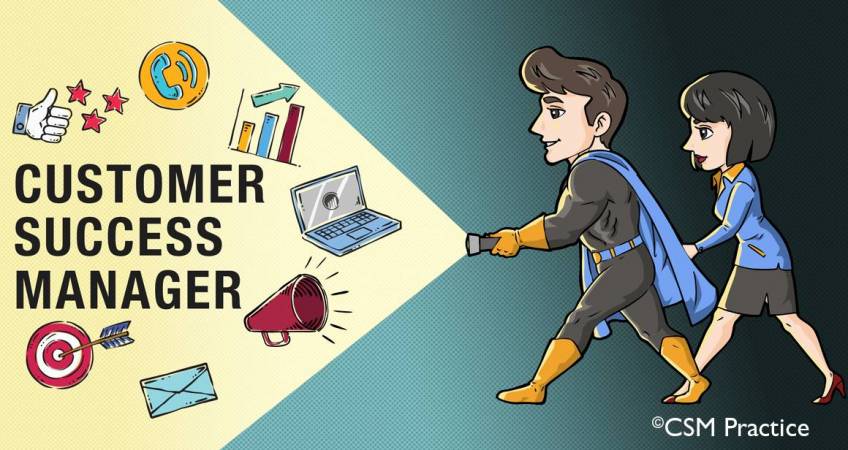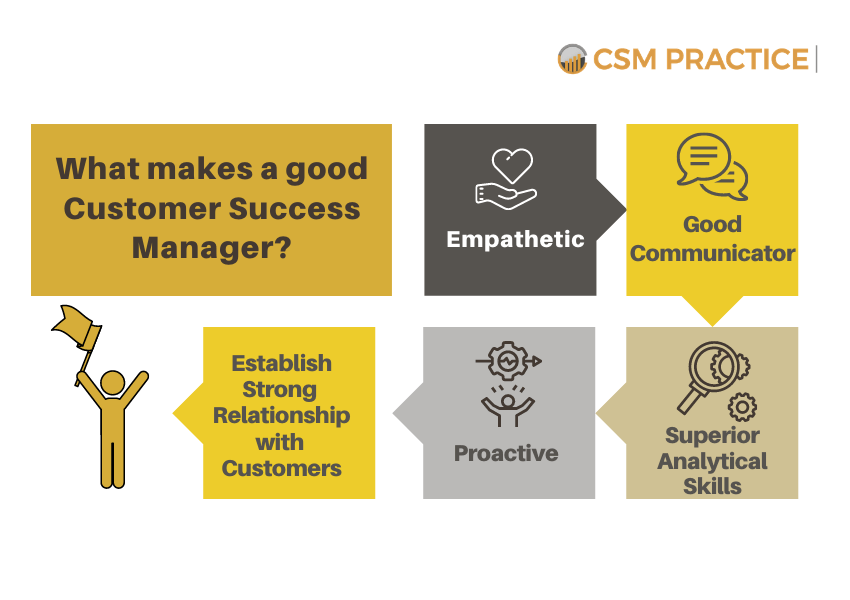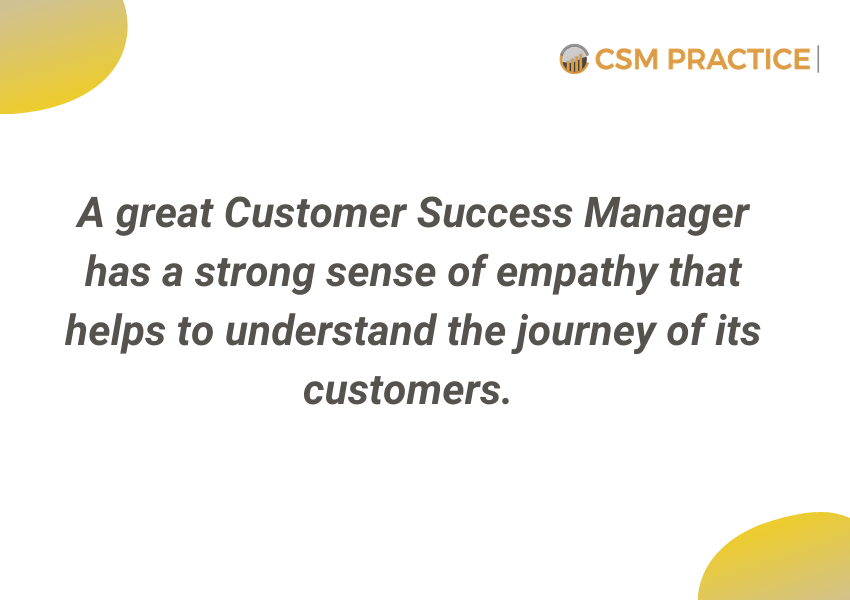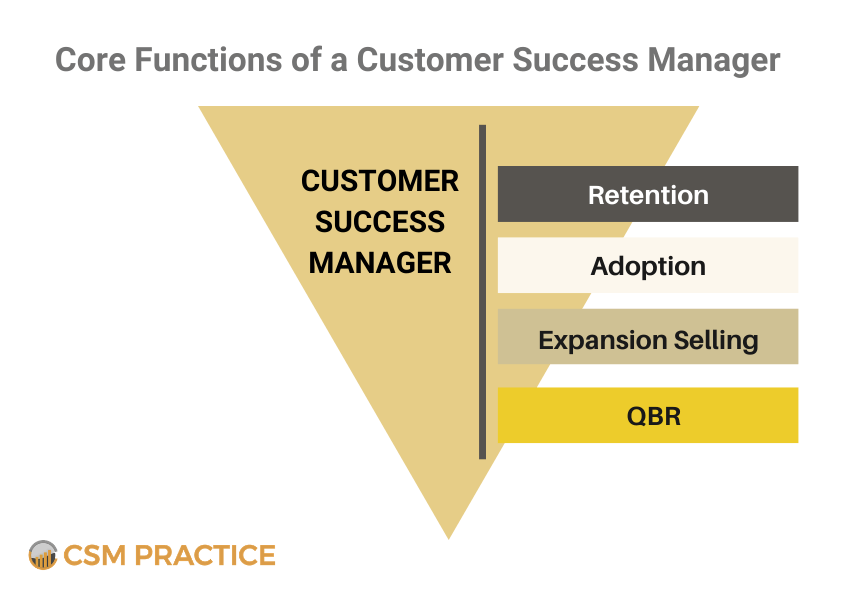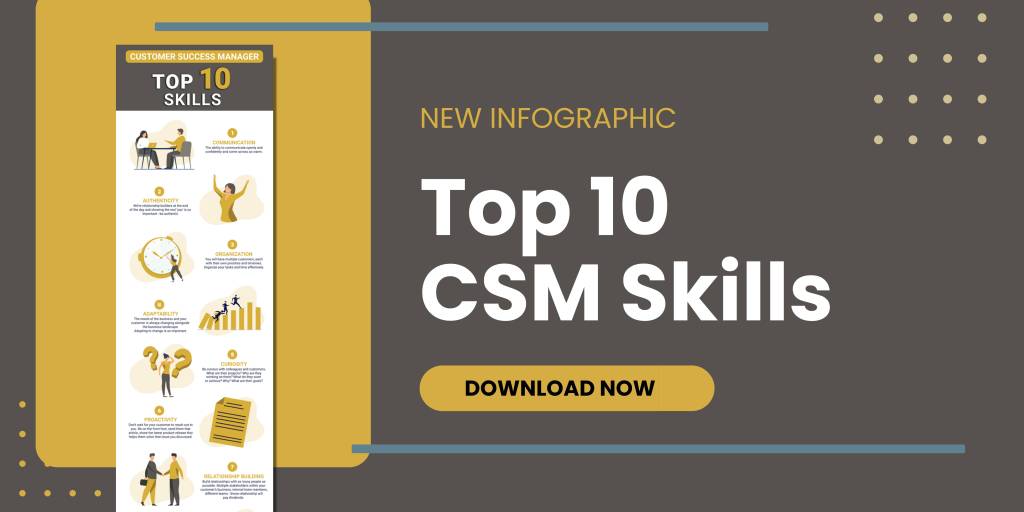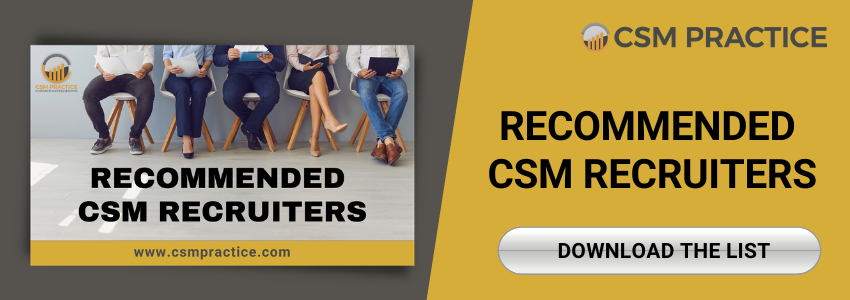Being a Customer Success Manager (CSM) is a non-stop learning process that requires hands-on management at every stage. At its most basic, customer success seems simple; however, in practice, it is complex and challenging as it should help to satiate every customer’s needs.
One of the critical aspects of customer success is relationship building. With this, one must be a good listener and a customer advocate. To add, a customer success manager needs to learn about their customer’s product or service. As a customer success professional, one must do the homework first before getting introduced to the customer.
CSMs are becoming an integral part of the extraordinary client experience. Every CSM has the primary goal of improving client retention and identifying expansion selling opportunities to grow their customer portfolio over time.
What is a Customer Success Manager
CSMs are becoming an integral part of the extraordinary client experience. Every CSM has the primary goal of improving client retention and identifying expansion selling opportunities to grow their customer portfolio over time.
Customer success managers are focused on long-term goals, specifically driving adoption, delivering value, and ensuring ROI. They are also in charge of setting up interactions like Quarterly Business Reviews (QBRs), customer education, and helping customers implement as many features as possible. Specializing in adoption allows CSMs to be proactive instead of being in firefighting mode. They’re focused on customer loyalty, building long-term customer relationships, and often staying with the same customers as long as they continue to work with your business.
That said, a customer success manager will be the company’s key player to work on client retention, expansion opportunities, and renewal of services.
What makes a good Customer Success Manager?
A great CSM has a strong sense of empathy that helps to understand the journey of its customers. The CSM’s role is to be empathetic towards their customers and develop long-lasting, successful connections. Establishing a strong relationship is a vital skill that the CSM must embrace.
A CSM is also a communicator. Without strong listening skills, the process of communicating with customers could be erratic. To add, a CSM has to have superior analytical skills to plan, execute, and lead a project successfully.
A proactive CSM isn’t just a helpful hand but a trusted advisor for the client. When leading their clients to success, CSMs need to advise executives with years of experience by speaking with authority on complex business concepts.
Empathy also plays a crucial role in the life of a CSM. As a customer success manager, you have to connect with your customer over their triumphs and frustrations to develop a long-term relationship.
Challenges
Customer success managers often encounter obstacles and pressure in retaining and keeping numerous accounts. Part of the responsibility is to provide customer support while developing a great relationship with the customers. As a customer success manager, you must earn your customers’ trust as it plays a vital role in fortifying relationships with them. The job is crucial for the company since they have to value customer concerns about the product or services and communicate them to the company. A customer success manager is responsible for various core functions such as customer retention and expansion selling; hence, they should be vigorous in customer handling skills.
A Day in a Life of a CSM
Customer Success Manager is not a profession that you can master overnight; it will take a lot of experience and knowledge to be an effective CSM.
Saqib Jamil, former Senior Customer Success Manager at Trapeze Group, and currently working with Darktrace, believes that there are three core functions that a CSM is expected to perform – retention, adoption, and expansion selling. Having a customer success experience for six and half years, Saqib believes that it is essential for a CSM to see and understand their customers’ products or services. It is also important for CSMs to understand the application process and translate it into business value for the customer. As a CSM professional, he argues that it is relevant to do the homework before getting introduced to the customer.
As Saqib puts it, “When I’m getting introduced to the customer and as I’m forming the relationship with them, the closer I am to them, they see me in the same phase, the more they trust me as a CSM.”
Core Functions of a Customer Success Manager
Your customers’ success is your success. Customer success managers have an integral role in delivering value to their customers. Here are the core functions that effective customer success managers should perform:
1. Retention
Customer retention is the process of engaging with existing customers to continue buying your products or services. It’s one of the main factors to measure a business’s success. Customer retention helps drive sales and traffic and achieve a high customer retention percentage. If customer retention is lacking, there is a high probability that your business is in jeopardy. Thus, a CSM has to address customers’ risks and concerns. Say, in maintaining relationships with your current customers, CSMs have to gratify them long after they purchase the product or service. In doing so, you encourage these customers to remain loyal by answering their questions, and concerns, and ensuring that your objectives are clear with them. After all, to directly impact customer retention, some goals of customer success are to organize, manage, and improve all aspects of the customer experience.
Adoption is a stage in every customer’s journey, a process of continuous value realization derived from your solutions and services.
In the adoption phase, a customer success manager has to address the following questions:
- How are the customers utilizing the solution provided to them?
- How well are they using the solution?
- Can they use more of the solution (ie: more features and functions)?
- How to ensure that customers receive proper guidance?
3. Expansion Selling
A CSM ensures that every customer is invested in their solutions and services. Identifying opportunities for upselling and cross-selling is one thing a CSM must deliberately focus on to implement proactive expansion selling. At the heart of the SaaS business model is increasing customers’ value over their lifetime. Expansion selling is a fundamental ingredient of long-term success and is more cost-effective than generating revenue from new customers. Businesses expanding their client accounts have to re-strategize towards sympathy and understanding of the customer’s unique needs. According to Lobat Kashi, Senior Customer Success Manager at Whitehat, expansion selling involves two main activities a CSM must secure 1. Relationship building and 2. Understanding customer’s business.
4. Quarterly Business Reviews
Even in doing quarterly business reviews (QBRs), CSMs must be proactive to prove the value of their relationship with their customers. For CSM’s, QBRs are an excellent opportunity to discuss your customer’s business and how you can support them. It is also vital to invite your customer’s executive team, as they can influence the decision-making process to better the company and improve customers’ value realization. Typically, during a Quarterly Business Review (QBR), clients are asked what their desired business outcomes are. A good CSM will then ensure that those business outcomes are delivered as requested.
The quarterly business review is a platform to explore opportunities and discuss with your customers to understand how they could benefit from such activity. This way, they will find the session incredibly useful and give them the chance to ask specific questions they have in mind. Inviting the right people helps the CSM understand the customers’ long-term goals, plans, and how they want to harness the product. While your CSMs likely will be responsible for facilitating these meetings, QBRs are typically most effective when executives from both sides—yours and your customer’s—are present. That way, both companies can better assess how they fit into each other’s business plans and objectives. Hence, CSMs must have the cadence to call regularly where relevant conversations and ideas will come up.
Here are some tips for CSMs on how to leverage QBRs:
- Create an agenda before conducting the QBR.
- Prepare to benchmark data to see how well your customer is doing in comparison to their competitors.
- Emphasize ROI by presenting numbers and data demonstrating the value you have delivered in a period.
- Make sure to involve the appropriate people such as decision-makers and executives.
- Work as a team during the discussion.
- In the absence of a customer relationship, a CSM may opt to engage a sales representative for help.
- Identify solid goals for the next QBR. This can be a good opportunity to bring up expansion opportunities for your customers.
CSM Productivity Tools
To monitor your customer success strategy and workflows, you need tools and software to help you track, organize, and manage them. These tools will make your life easier given the number of responsibilities you have as a CSM.
Salesforce
Salesforce is a customer relationship management technology that helps CSMs monitor customer data to further build intimate and meaningful relationships. In getting to know the customers, learning the customer metrics with Salesforce’s help allows CSMs to perform their daily operations without complications. Salesforce is a helpful one-stop-shop software within the whole organizational business that enables them to:
- Actively tracks and manages customer information.
- Connects your entire team from any device.
- Intelligently captures customer emails.
- Simplify repetitive tasks so you can concentrate on leads.
As Saqib shared: “At Trapeze, we use Salesforce. As I understood the role in my journey, I started to know about the customers. I started to know about the metrics that matter to them and to us. I started producing these reports (through Salesforce), dashboards that I can look up. And see what’s in there and what I need to do for the customers. Those help me on what the customers need to be spoken to about and who I need for the internal organizations to those collaborations.”
The strategic account segment most likely holds the most potential growth in revenues through upsells, cross-sells, and referrals. As such, it is no surprise that customer success teams assign a high-touch engagement model to manage those strategic accounts. Upsell and cross-sell opportunities within that segment are not found through sheer luck. It requires a diligent CSM to develop success plans, set quantifiable goals, create playbooks and calls to action, and then monitor quantifiable metrics and demonstrate business outcomes.
The Success Plan Salesforce solution will help your CSMs to:
- Track revenue against the forecast for each strategic account
- Define the strategy for each significant account
- Track the plan’s objectives versus achieved outcomes
- Plan strategic actions and track progress
- Identify the potential barriers to attaining the account objectives, create and execute a readiness plan, and specify support required from other teams.
- Define a governance model
Hubspot
HubSpot’s all-in-one customer satisfaction solution is free to start and scales up to meet the needs of a large company. Hubspot offers tickets to help customers organize their requests and problems. It also has a team inbox where the reps and agents can exchange messages and allocate tickets. You can also use Hubspot to see consumer reviews and conduct surveys, as well as evaluate the feedback and customer satisfaction ratings.
Redbooth
Redbooth is a collaboration platform for helping customer success teams stay on top of internal initiatives. It optimizes tasks and communication management so projects get completed faster and easier.
Monday.com
Monday manages your projects & tasks in an easy visual way. It allows for easy collaboration with your CSM team from anywhere and across all your devices.
SmartSheet
SmartSheet eliminates unnecessary meetings in your schedule so you can focus on strategy and be proactive. Apart from managing your CSM responsibilities in real time, this SaaS application improves collaboration and automates workflow.
Making a Difference as a CSM
According to Saqib, to make a difference to customers, a customer success manager needs to understand the following:
- How the customers use the solution the company provides
- How has the recent relationship history been with the customers?
- How are they treated as customers?
- What are the customers’ grievances?
- What are the things that make the customers happy?
- What are the ideas that resonate with the customers?
Customer success managers need to become customer advocates in understanding their customers’ business. Get the facts that they are referring to and use that to figure out how you can provide them value to obtain their trust. The right set of skills, attitudes, and experience makes up the world’s best customer success manager.
How can CSM Practice Help!
At CSM Practice, we work with Customer Success executives to define the proper organizational structure, CSM role definition, Team Performance Indicators, and other customer success-related opportunities.
CSM Practice specializes in the technology and services industry, which offers a portfolio of enterprise solutions to achieve successful and scalable results. CSM Practice offers a customer-centered approach that helps you develop a winning plan for your client’s success.
Please take it to the next level! Ask CSM Practice about the services we provide and learn how we can help you transform your organization into success.

